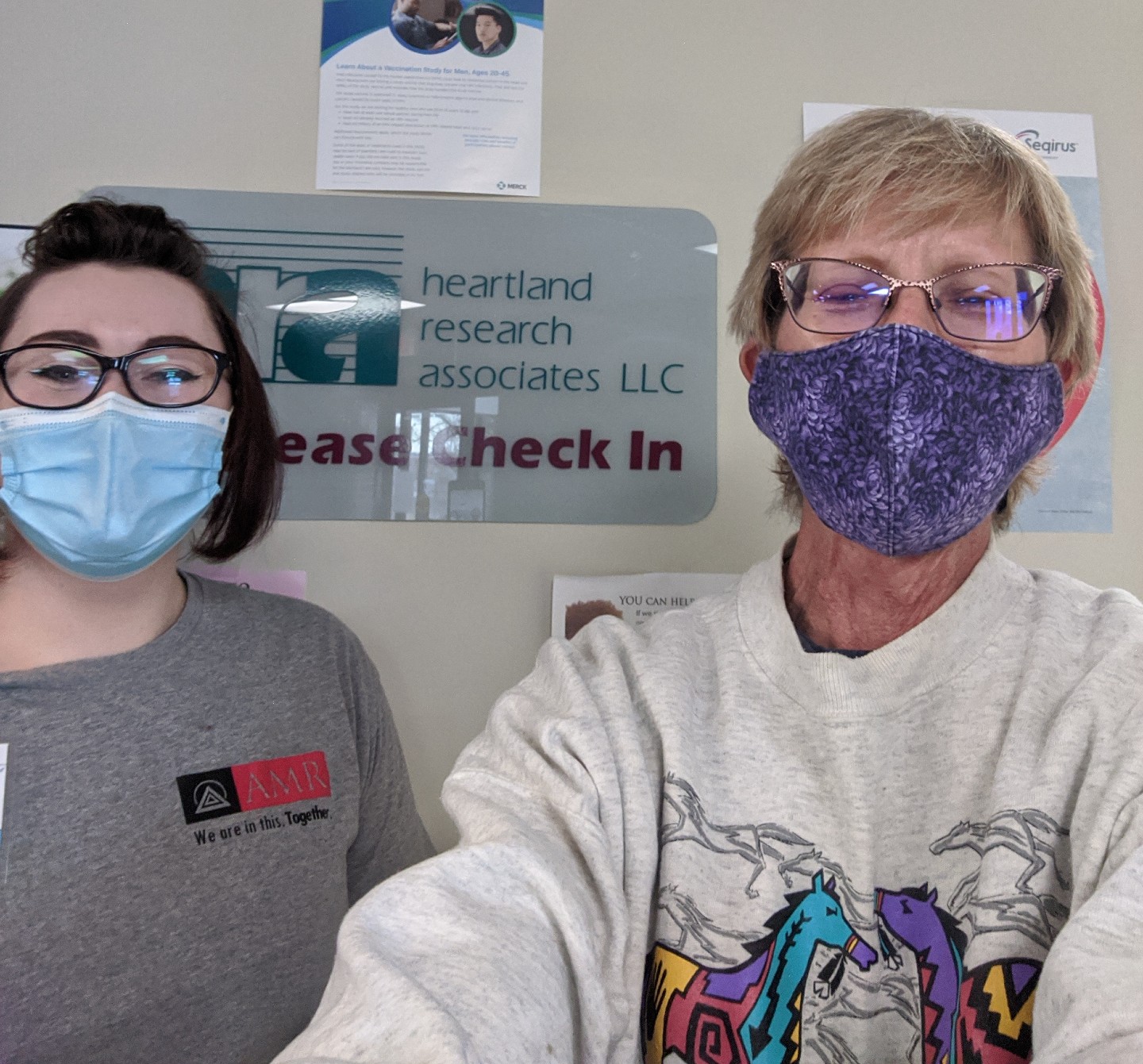For the past couple of years, I’ve served as a human guinea pig in clinical trials of drugs. It feels good to know that I’m helping to further science and that someone somewhere can be protected from a potentially deadly disease. And, yes, the money is nice, too.
My introduction to clinical trials came via a friend in Canada, who started taking part in them after losing her job. Due to her allergies, she had many to choose from. Here in Wichita, I saw an advertisement from Heartland Research Associates for participants in a clinical trial for a new vaccine for RSV — Respiratory Syncytial Virus Infection. I contacted Heartland to find out more. I learned this respiratory virus is hardest on the old and young, killing about 14,000 people older than 65 each year and hospitalizing more than 57,000 children under 5.
We went through screening questions over the phone to qualify me for the trial. They were particularly interested in healthy adults over 50. I was told that I would be a good candidate that I would be paid for 14 visits to the clinic during an 18-month period.
This was a Phase 3 trial, which meant that there had already been clinical trials to identify what side effects might result, such as pain or swelling at the injection site or muscle pain. In Phase 3, many more trial participants are recruited to identify rarer side effects. As with all clinical trials, a certain percentage of participants received a placebo and others get the actual vaccine.
From the start, everyone I encountered at Heartland — now AMR Wichita — was friendly and showed genuine interest in getting to know me as a person, not just as a clinical participant. My first visit was pretty much all paperwork — confirming the qualifying questions, going through the lengthy informed consent form which goes over any possible side effects that were identified in the earlier trials — along with the first of what would be many blood draws.
They asked if it would be okay for one of the phlebotomy students to do the blood draw. I said, “Yes,” as I’m not squeamish, and how else is someone supposed to get experience in a setting outside the classroom? She is now my favorite of the phlebotomists at the clinic.
Some visits were easier than others simply because my veins can be a little difficult. There were a couple of trips where they had to use both arms. And one or two where we barely got the required amount. In between visits, I used an electronic diary to record any symptoms that might crop up and a paper diary to record any over-the-counter or prescription medications that I’d taken.
I wrapped up the RSV trial at the end of August. When I asked when I could know whether I received the vaccine or the placebo, I found out that information is not released for two years. At that visit, I also asked about the COVID-19 vaccine trial, for which they were looking for volunteers. I talked to one of the recruiters and, based on the screening questions, I qualified for the trial. But there was a waiting period of 28 days before I could start a new trial. Then, that trial was put on hold due to a problem with side effects during a trial of the same vaccine in the United Kingdom. Meantime, another recruiter called me about several other vaccine trials they needed subjects for.
(I also learned that Heartland had become affiliated with the Alliance for Multispecialty Research, or AMR, which has 16 locations across the United States. AMR has conducted over 7,700 clinical trials and has databases of more than 657,000 patients.)
I decided to take the Chikungunya vaccine trial as it was short — seven months — and paid $150-$200 per visit. Chikungunya is not much of a problem in this country, since it’s usually carried by mosquitos in Asia and Africa. It causes extreme fatigue and muscle pain for its victims, and there currently is no vaccine available. There is also the possibility of it being carried to other countries by affected travelers.
I will have made three visits by the time you read this, with four more to go. So far, this has been as easy as the first trial, with no side effects.
Taking part in clinical trials has helped me make ends meet during a time when my husband’s medical condition — he has early onset dementia — and reduced hours at my own job have presented a challenge. I tell people being a human guinea pig is the easiest money I’ve ever earned.
The AMR Wichita website (https://heartlandresearch.com/studies/) lists all the current studies for which participants are being enrolled and contains an online sign-up form. Besides vaccines, there are studies ranging from Alzheimer’s to smoking cessation to Irritable Bowel Syndrome.
Both AMR and the KU Wichita Center for Clinical Research are involved in the trials for the AstraZeneca COVID-19 vaccine and are recruiting participants now that it has gotten the go-ahead.
I will have to wait 28 days when the current trial I’m in is done before starting another. I’m hoping that as the COVID-19 trials move forward, there will still be a trial for me to be a part of come spring.
A regular contributor to The Active Age, Leslie Chaffin wrote about her husband’s early onset dementia in our December 2019 issue. She can be reached at lrchaffin20@gmail.com.

Leslie Chaffin, right, with a staff member at Heartland Research Associates LLC.








